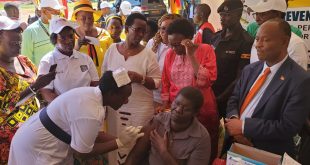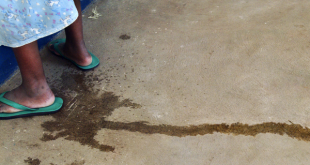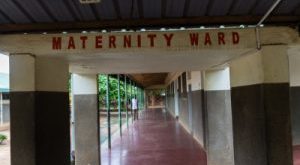
BY GEOFREY ACHORA
PAKWACH: WEDNESDAY, OCTOBER 12, 2022
Forty-six kilometers north-west of Pakwach town along the Pakwack-Pawor-Arua road, the landscape was changing 12 months ago. Mushrooming office buildings, storage facilities, artificial reservoirs and dams and secondary water canals were turning a hitherto 1,000 hectares of underutilized land into what is projected to be life transforming Wadelai irrigation scheme.
It is a major irrigation scheme under the second phase of the farm income enhancement and forestry conservation project being funded by the African Development Bank, the Nordic Development Fund and the government of Uganda to improve household incomes through largescale irrigation farming.
However, completion of the sh56b scheme has dragged beyond the original 42 months planned project duration.
This is attributed to a standoff over land acquisition pitting the Paten community in Wadelai Sub-county, Pakwach district against the project implementers and the local authority.
Godfrey Cwinya-ai, a representative of the aggrieved community, cited as the underlying cause of the misunderstanding alleged trivial tricks used by the project officials to dupe communities during land acquisition and collusion between compromised local leaders and the project implementer to coerce the people to accept dubious terms of compensation.
“The Paten community agreed to offer 365 acres of land for the irrigation facility but the cunning project staff recorded 365 hectares which they went ahead to survey,” he said.
Where as project officials have denied these claims, Cwinya-ai called this is a “deliberate act of land grab and those who attempted to resist this theft were mercilessly dealt with by the antiriot police and soldiers.”
He underlined that the Paten community previously gave free land to the government, including the land for establishment of the Wadelai prison and the vast prison estate.
Now this time the people are asking for a commensurate compensation and want part of their customary land preserved as their population increases.
Community members claim that the project is adversely affecting their livelihood as they are denied access to the land they depended on for firewood, building materials, cultivation and grazing.

Speculations of bringing “investors” from outside Pakwach to farm and graze their cattle at the irrigation facility only fueled the heightened anger among the community as they suspected that a racket could be lurking in the background of the project.
Kizito Onono, a clan elder, insisted that most of the people from Ayavu East village and the entire Paten community were happy that the management of their land would be in their own hands as beneficiaries of the irrigation scheme.
“To our surprise they started putting us in groups and speculation of bringing investors started spreading. We started seeing that something was not right here but some of us were blacklisted among those claimed to be inciting the community when we demanded for the truth during site meetings,” he said.
Onono said that the Coil Company limited overseeing the construction work of the irrigation scheme went ahead and surveyed the disputed Adiri land without the clan members’ involvement and in the forceful takeover, many farms were destroyed and people were not compensated for the lost produce.
About 50 homesteads were also displaced and are living in a temporary encampment in the adjacent bush.
In the ensuing protests, security forces fired teargas upon the people, 16 protesters were injured in the melee and perceived ringleaders were arrested including the clan chief, Santonino Daudi Onen.
On June 29, 2021, Onen and two of his subjects, Franco Opio and Denis Oyonji, were charged with sabotage of government Wadelai irrigation scheme and threatening violence under a case file GEF/03/2021 at Pakwach police station. Six more people were arrested and charged with the same offence.

“With my state of health, I was abused by the military men in uniform and whisked in a van to Pakwach police station for defending the land that my ancestors left and that I oversee on behalf of my clan,” the old man stated in local parlance.
Customary tenure is the predominant land tenure system in Uganda where land is owned and administered according to customs and practices of a given geographical or culturally defined area.
However, as Jean Claude Ashuken, a South African scholar from the North-West University, Potchefotroon, observed in a December 16, 2020 publication in the International Journal on Minority and Group Rights: “despite the constitutional and legislative guarantee to land in Uganda, customary land tenure seems to suffer from inadequate legal protection, a situation that is analogous to that in the colonial and the immediate post-independence era.”
He argues that weak customary land rights could be susceptible to the occupants’ deprivation during land grabbing.
Ashuken recommends that there is a need to address this situation in order to holistically ensure and promote an effective land governance regime that respects and protect customary land tenure.
Onen maintained that the Paten clan is not against the irrigation project but wants proper compliance and grievance management mechanism to be put in place rather than using force on what should benefit the people.
“It is because this demand I and my other two sons were charged for failing this project when we actually asked for justice,” he said.
The search for justice
As the construction and expansion works continued under guard of security forces, the traditional chief and the community sought the intervention of the project funders-the African Development Bank and the Nordic Development Fund-to halt the project and investigate the issues raised.
They also wrote to the Executive Director of Buliisa Initiative for Rural Development Organization (BIRUDO), a nongovernmental organization operating in Pakwach district to offer them legal representation.
BIRUDO is a human rights defenders’ organization that works to improve the quality of life of the disadvantaged local communities through information sharing, sensitization and advocacy and networking for sustainable development.
Furious Pakwach district officials responded by banning the organization from operating in the district, alleging that it was siding with the community to do a campaign of sabotage.
ADB responds
The African Development Bank responded by stating that it has a decades-old track-record of being responsive to allegations of civil and human rights abuses in communities where projects are funded.
This includes putting in place an Independent Recourse Mechanism (IRM) that reviews and handles complaints.
“The allegations contained in your letter were previously brought to the attention of the Bank, following which a request was made to the Government of Uganda for the conduct of a detailed investigation. We expect to receive the findings of this investigation in short order,” the bank said in a statement.
In an attempt to protect this communal land, the community petitioned the Hight Court in which they want charges against the chief dropped unconditional and some officials be investigated for alleged misappropriation of funds meant for adequate and fair compensation.
They also asked for a temporary injunction to halt constructions activities, a prayer which was granted by the court.

Leaders state willingness to negotiate
As the people await the final decision of the Courts, some of the leaders in Pakwach district have expressed willingness to engage with the local community to resolve the dispute.
The Pakwach Resident District Commissioner (RDC), Paul Eseru, says the peasantry class may lose confidence in the Judiciary if their land cases are not handled fairly, expeditiously and transparently.
In a bid to cultivate cooperation he wants the locals to be thoroughly sensitized to own and accept such huge government projects through inculcation of mindset change lessons in any dealings with the community.
“Land disputes are very rampant in this region. To avert this, we need to be speaking to the community timely other than ambushing them. Otherwise, we may not achieve what is in our agenda for the community and after five years we shall not have anything tangible to account before them,’’ he said.
Bernard Awori, the Wadelai irrigation Scheme focal point person, reiterated that the government is open to dialogue with the land owners to resolve the matter amicably.
He acknowledged that the land dispute has dragged behind the completion and subsequent commissioning of the project that a new date for completion has been set for June 30, 2023.
Awori said the project works currently stand at 75% and largely blamed the Paten clan for the delay charging that they are demanding hefty compensation for their land.
He highlighted that once construction activities end, they would implement an integrated natural resource management program to promote fuel saving stoves and mainstreaming of tree planting to protect the environment.
There also would be agribusiness development prioritizing business skills training, apiculture, aquaculture, seedling production and business value chain to ensure the people benefit from the Wadelai irrigation scheme.
This story was produced with support from the Northern Uganda Media Club.



